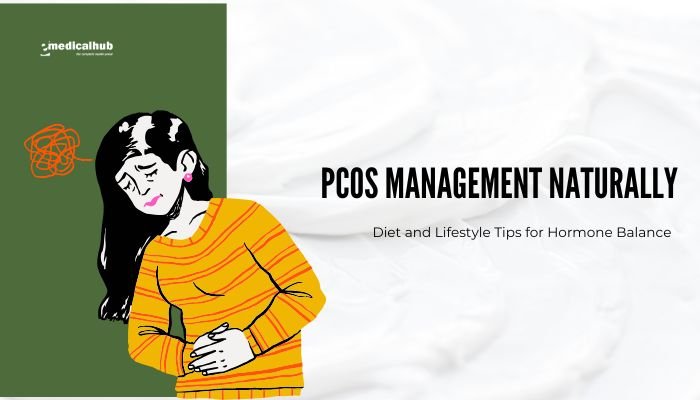Introduction
In recent years, “gut health” has become a buzzword, fueling interest in specialized diets, fermented foods, and probiotic supplements. The human gastrointestinal tract, once primarily discussed in terms of digestion, is now recognized as a dynamic ecosystem that heavily influences immune function, metabolism, and even mental well-being.

Meanwhile, probiotics—beneficial bacteria found in certain foods or supplements—are marketed as a key strategy for maintaining or improving gut health. But why exactly is everyone so invested in nurturing their microbiome? And how do probiotics fit into the bigger picture?
This article unravels the importance of gut health, explores how an imbalanced microbiota might affect overall wellness, and clarifies what probiotics are and why they’re generating so much buzz. From immune system support to potential mental health benefits, the microbiome’s role is vast.
While the hype is real, it’s also critical to separate evidence-based truths from marketing claims. If you’re curious about giving your gut a helping hand, read on for practical guidance about probiotics, dietary choices, and other healthy habits that can positively impact your digestive ecosystem.
Disclaimer: The information provided here is for general educational purposes and does not replace medical or nutritional advice. If you have specific gut health concerns or serious GI symptoms, consult a qualified healthcare provider.
Why Gut Health Matters
The Microbiome at a Glance
Deep within your intestines live trillions of microorganisms—bacteria, fungi, viruses—collectively called the gut microbiome. Once thought to be passive stowaways, these microbes:
- Help break down certain foods (like complex carbohydrates or fibers) into usable nutrients.
- Synthesize vital compounds such as vitamins (e.g., vitamin K, certain B vitamins).
- Interact with immune cells, modulating inflammatory processes.
A balanced, diverse microbiome is often correlated with better overall health, whereas an imbalance (dysbiosis) may contribute to ailments ranging from irritable bowel syndrome to metabolic diseases.
Whole-Body Effects of Gut Imbalances
- Digestive Complaints: Bloating, diarrhea, constipation, and abdominal discomfort can emerge when harmful bacteria outnumber beneficial species.
- Immune Dysfunction: Approximately 70% of immune cells reside in the gut, so an unhealthy microbiome can leave you more prone to infections or autoimmune flare-ups.
- Metabolic and Weight Issues: Certain microbial patterns may promote obesity or insulin resistance.
- Mood and Mental Health: The “gut-brain axis” suggests the gut can affect neurotransmitter production, potentially influencing stress, anxiety, or depression.
Hence, keeping your microbiome in good shape can offer benefits extending far beyond simpler digestion.
The Rise of Probiotics
Defining Probiotics
Probiotics are live microorganisms, typically bacteria or yeasts, that, when consumed in adequate amounts, may confer health advantages. Common probiotic genera include Lactobacillus and Bifidobacterium, with some beneficial yeast strains like Saccharomyces boulardii also recognized.
Historical and Cultural Roots
Long before the term “probiotic” was coined, many traditional cuisines centered on fermented products—yogurt, kefir, sauerkraut, kimchi, tempeh—staple in diets worldwide. Their longevity and repeated usage for centuries highlight the believed link between fermented foods and digestive wellness.
Modern Demand and Research
Today, supermarkets abound with probiotic-fortified items, from beverages to bars. The surge in popularity aligns with mounting research evidence that:
- Certain probiotics can help balance gut flora after antibiotic use.
- They may aid in reducing diarrhea episodes, especially antibiotic-associated or traveler’s diarrhea.
- Some strains support improved IBS (irritable bowel syndrome) symptoms, though results vary individually.
While real benefits exist for specific conditions, the effect depends significantly on the probiotic strain, dose, and synergy with a person’s unique microbiome.
Potential Benefits of Probiotics
Digestive Health
- Reduced Diarrhea and Bloating: Specific strains help restore beneficial bacteria after antibiotic courses or manage diarrhea of various etiologies.
- Irritable Bowel Syndrome (IBS): Some people find relief from abdominal pain, bloating, or irregular bowel movements, though IBS is complex, and results vary.
Immune Support
By interacting with gut-associated lymphoid tissue, certain probiotics:
- Enhance Local Immunity: Some strains appear to help maintain a robust gut barrier, blocking pathogens.
- Modulate Systemic Inflammation: May reduce pro-inflammatory markers, beneficial for those with mild inflammatory conditions.
Mental Health and the Gut-Brain Axis
Often referred to as “psychobiotics,” certain probiotics might contribute to:
- Reduced Anxiety or Stress: Preliminary studies indicate a mild positive effect on stress hormone regulation.
- Cognitive or Mood Support: Some small trials show modest improvements in emotional states. More robust research is still needed.
Weight Management
Some observational data suggests that individuals with healthy gut flora are less prone to obesity. Certain Lactobacillus and Bifidobacterium strains might help regulate energy extraction from food or influence satiety hormones, but it’s not a standalone solution for weight loss.
Different Types of Probiotics
Fermented Foods
- Yogurt and Kefir: Contain lactic acid bacteria beneficial for intestinal function. Check labels for “live and active cultures.”
- Kimchi and Sauerkraut: Fermented vegetables that can repopulate gut with diverse microbes.
- Kombucha: A fermented tea with a symbiotic culture of bacteria and yeast (SCOBY).
- Tempeh and Miso: Soy-based ferments with beneficial fungi/bacteria.
Supplements
Probiotic supplements come in capsules, powders, or even gummies. The main variations include:
- Single-Strain: e.g., Lactobacillus rhamnosus GG or Bifidobacterium lactis.
- Multi-Strain Blends: Some aim for synergy, combining multiple species and strains.
- Targeted Formulas: Some specifically for IBS, vaginal health, or immunity.
When selecting a supplement, consider CFU count (colony-forming units), recommended dose, and brand reliability.
Fortified Foods
Ranging from cereals to snacks, these are often labeled “contains probiotics.” While convenient, verify strain viability and CFU quantity if possible. Not all fortified products deliver clinically relevant doses or beneficial strains.
Best Practices for Incorporating Probiotics
Gradual Introduction
Suddenly ingesting large amounts of fermented foods or high-dose probiotic supplements can cause gas, bloating, or diarrhea in some individuals. A slow ramp-up helps your gut adapt.
Pair with Prebiotics
Prebiotics—non-digestible fibers that feed beneficial gut bacteria—enhance probiotic efficacy. Examples include onions, garlic, leeks, bananas, chicory root, or whole grains. Combining both fosters a robust environment for friendly microbes.
Check Storage Instructions
Many probiotic strains require refrigeration to remain viable, though some shelf-stable options exist. Heat or moisture can kill live cultures, so store them as indicated.
Personalized Strain Selection
One strain doesn’t solve all issues:
- L. rhamnosus GG might help antibiotic-associated diarrhea.
- B. infantis is studied for IBS.
- S. boulardii is known to reduce traveler’s diarrhea.
If you’re targeting a specific concern, research or consult a healthcare professional on the best probiotic match.
Avoiding Pitfalls and Misconceptions
Overgeneralization
Probiotics aren’t a cure-all. Many claims are overblown. Some people see minimal improvements, or they might need different strains. More evidence is needed in certain areas (like mental health or autism).
Overreliance on Supplements
While quality supplements can be helpful, it’s ideal to incorporate a varied whole-food-based approach—including fiber, fruits, vegetables, and fermented foods. That fosters an overall supportive environment for gut microbes.
Not Checking Quality or Strain Specifics
A random probiotic or a cheap brand might not contain the stated CFU or the beneficial strains indicated. Also, “Proprietary blends” on labels can obscure the actual strain composition. Research or consult resources like third-party testing labs for reliability.
Disregarding Underlying Conditions
If you suspect deeper GI issues (like SIBO, IBS, or Crohn’s) consult a gastroenterologist or registered dietitian for a targeted plan. Some individuals with certain conditions must approach probiotic usage cautiously.
Whole-Lifestyle Perspective for Gut Health
Stress Management
Chronic stress can alter gut motility and the microbial environment:
- Mindfulness or Yoga: Helps reduce cortisol that disrupts gut flora.
- Adequate Sleep: Sleep deficits can shift microbiome composition. Aim for 7–9 hours nightly.
Balanced Diet
Probiotics work best as part of a diet full of varied, nutrient-dense foods:
- High-Fiber Carbs: Whole grains, legumes, seeds fueling beneficial bacteria.
- Colorful Produce: Polyphenols from fruits/vegetables can shape the microbiome in beneficial ways.
- Healthy Fats: Seeds, nuts, avocado, olive oil can support gut integrity.
Regular Physical Activity
Studies show moderate exercise can enrich microbiome diversity. Combined with mindful eating, you create a synergy that supports healthy gut function and mental well-being.
Who Might Need Extra Caution?
Immunocompromised Individuals
In rare instances, certain probiotic strains could cause infection if someone is severely immunosuppressed. They should only use probiotics under medical supervision.
Infants and the Elderly
While there are specialized probiotic formulas for these groups, consulting a pediatrician or geriatric specialist ensures safety, especially with advanced age or underdeveloped/informal immune systems.
People on Multiple Medications
Probiotics might interact with certain drugs or cause unexpected effects (though typically mild). Checking with a pharmacist is wise.
Real-World Examples and Success Stories
IBS Sufferer Finding Relief
A woman with IBS added daily kefir and a targeted multi-strain probiotic. Over two months, she reported less bloating and more regular bowel movements. She attributed part of her improvement to consistent fiber intake and stress management as well.
Antibiotic Recovery
After antibiotic therapy for a sinus infection, a man faced recurrent diarrhea and cramping. Introducing probiotic yogurt plus a short course of a Lactobacillus supplement seemed to restore normal bowel function within a week, highlighting how quickly beneficial bacteria can be replenished.
Enhanced Mood and Less Sugar Cravings
A stressed office worker noticed gradual mental clarity and less desire for sugary snacks after a month of daily kimchi consumption. While no single factor can be proven the cause, a synergy of improved gut flora and stable blood sugar might have contributed.
Frequently Asked Questions (FAQ)
Do I need to take probiotics daily for life?
Not necessarily. Some find short-term usage beneficial for rebalancing after illness. Others incorporate them long-term for ongoing support. It’s individual—monitor how you feel, or rely on fermented foods regularly.
Can I get enough probiotics from diet alone?
Many fermented foods contain beneficial bacteria. However, quantities and strains can vary. If you need a specific dose or strain for a certain health goal, a supplement might be simpler.
Do probiotic-rich foods survive stomach acid?
Some do, especially certain resilient strains. The quantity that actually arrives in your intestines depends on factors like strain type, product manufacturing, and transit time. That’s why CFU counts in supplements account for some expected losses.
Is there a test to determine which probiotic I need?
Commercial gut microbiome tests exist, but their clinical utility is debated. A dietitian or doctor might recommend a trial-and-error approach based on symptoms, or certain well-researched strains for your condition.
What if I feel bloated or gassy after starting probiotics?
Mild gas or bloating can occur as your gut adjusts to new bacterial populations. If symptoms persist beyond a couple of weeks, reduce dosage or consult a healthcare professional.
Conclusion
The heightened enthusiasm about gut health and probiotics stems from a growing body of research underscoring the gastrointestinal tract’s integral role in overall wellness. Far from just aiding digestion, the microbiome influences immunity, metabolic health, and even emotional equilibrium.
Probiotics—delivered through fermented foods or supplements—can help populate or rebalance the gut with beneficial microbes, potentially easing issues like bloating, diarrhea, or mild gut inflammation. They may also support broader health areas like mental well-being or weight management, though results differ by individual and the specific probiotic strain.
However, simply popping any probiotic pill or jumping into fermented foods without a strategic approach may not guarantee benefits. The synergy of a whole-foods diet rich in fiber, consistent healthy lifestyle habits, stress management, and, where needed, well-chosen probiotics is key to nurturing a robust microbiome.
Ultimately, the “gut revolution” underscores that better digestion and energy—and perhaps greater emotional resilience—begin with what we put on our plates (and into our guts). By incorporating mindful dietary choices, exploring high-quality probiotics, and sustaining supportive daily behaviors, we can harness the power of this remarkable gut-brain connection for long-term health.
References
- Hill C, et al. The International Scientific Association for Probiotics and Prebiotics consensus statement on the scope and appropriate use of the term probiotic. Nat Rev Gastro Hepatol. 2014;11(8):506-514.
- Jandhyala SM, et al. Role of the normal gut microbiota. World J Gastroenterol. 2015;21(29):8787-8803.
- Thursby E, Juge N. Introduction to the human gut microbiota. Biochem J. 2017;474(11):1823-1836.
- Sanders ME, et al. Probiotics and prebiotics in intestinal health and disease: from biology to the clinic. Nat Rev Gastroenterol Hepatol. 2019;16(10):605-616.
- Khanna S, et al. The Microbiome in Infectious Diseases: A Review Focusing on Probiotics. J Infect Dis. 2022;225(Suppl 2):S131-S137.
- Suez J, et al. The pros, cons, and many unknowns of probiotics. Nat Med. 2019;25(5):716-729.
- Hooper LV, Littman DR, Macpherson AJ. Interactions between the microbiota and the immune system. Science. 2012;336(6086):1268-73.
- DeFilipp Z, Bloom PP, Torres Soto M, et al. CDI risk and probiotic use. Infect Control Hosp Epidemiol. 2019;40(6):616-622.
- Forsyth CB, et al. Lactobacillus rhamnosus may alter gut-liver axis in alcoholic liver disease. Transl Gastroenterol Hepatol. 2019;4:26.
- Ma Q, et al. The role of gut microbiota in mental health and psychological well-being. Front Neuroendocrinol. 2019;54:100761.
- Le Chatelier E, et al. Richness of human gut microbiome correlates with metabolic markers. Nature. 2013;500(7464):541-546.
- Gibson GR, Hutkins R, Sanders ME, et al. Expert consensus document: The International Scientific Association for Probiotics and Prebiotics (ISAPP) consensus on the definition and scope of synbiotics. Nat Rev Gastroenterol Hepatol. 2020;17(11):687-701.




